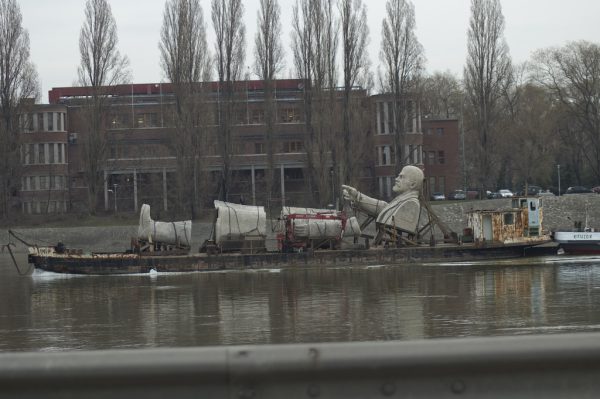ASPI suggests

The world
The decades-old Iranian–Saudi rivalry ramped up this week after Saudi Arabia accused Iran of supplying arms to the conflict in Yemen and using Hezbollah to exert political influence in Lebanon. The Lebanese prime minister, Rafik Hariri, has resigned, which Hezbollah claims was the result of Saudi pressure. Gulf countries loyal to Saudi Arabia then ordered all their citizens to leave Lebanon and banned future travel—echoing the abrupt ostracisation of Qatar earlier this year over Doha’s allegedly warm ties with Tehran. The Harvard Kennedy School’s Belfer Center explains this complex and bitter hegemonic rivalry over power and influence, and this piece from The Atlantic provides the view from Beirut of the implications of a Saudi leadership emboldened to counter Iranian regional influence. Complementing that, this New York Times op-ed explains the recent series of events in Saudi Arabia—involving the arrests of various princes, ministers and military personnel—and why the actions of Crown Prince Mohamed bin Salman to shake the Saudi political order, as well as his approach to confronting Iran, should be treated with caution.
With Donald Trump in Asia, the spotlight is on his foreign policy and his handling of some of the most important US relationships. This piece from the Washington Post scratches the thin veneer off the Trump–Abe relationship to take a closer look at Trump’s treatment of his Japanese ‘sidekick’. But the main event of the tour is Trump’s visit to China, and the latest round of power games between Trump and Xi. The New York Times has both sides covered, with one piece on Xi’s plans to woo Trump and another on Trump’s strategy to befriend Xi. Following Chinese internet protocol clearly isn’t part of the plan; even the ‘great firewall of China’ isn’t enough to stop Trump tweeting. To test your knowledge of the year since Trump’s election, check out the ABC’s anniversary quiz.
Over in the UK, the Guardian looks at how a complete collapse of trust in institutions has rendered the UK ungovernable, amid a series of dodgy cabinet ministerial resignations (the defence secretary’s ‘Pestminster’ scandal and the international development secretary’s shady behaviour). The New Statesman presents an unforgiving profile of Boris Johnson waiting in the wings to make his move into Number 10.
A long investigative piece from Foreign Policy highlights the illegal arms trade in Syria, which is facilitated by messaging apps such as Telegram. A variety of weapons can be traced back to CIA-run programs that supplied anti-Assad rebels with TOW missiles.
Politico’s latest great read (with accompanying two-part podcast) spotlights the innate sexual harassment and sexism in Washington’s national security sector. It documents women’s barriers to entry and the unique challenges they face. Time published this piece written by three women who participated in the podcast, arguing that a cultural shift is required and that men must lead the way for the women leaders of the future. The New Yorker tells the incredible story of Harvey Weinstein’s use of private security contractors, including ex-Mossad agents, to silence sexual assault allegations.
Two pieces for the bookish this week. The Guardian examines Rudyard Kipling’s role writing pro-imperial propaganda to help quell Indian nationalist dissent during World War I. And the Daily Beast tells the story of ‘the greatest literary crime in history’. Worried about the reputation of the recently deceased Lord Byron, his closest friends torched his unpublished memoirs after his untimely death.
It’s all things Lenin in this photo essay from The Atlantic to commemorate the 100th anniversary of Russia’s October Revolution. And to segue into our tech section: here’s a cool New York Times infographic documenting a year of news stories in push notifications.
Tech geek of the week
Limits on warhead weights for South Korea’s ballistic missiles were scrapped in recent discussions with the US. South Korea is also considering the possibility of acquiring nuclear-powered submarines (SSNs), as well as advanced ‘JSTARs’ aircraft for targeting and reconnaissance of North Korean ground forces.
Japan is considering buying two ground-based ‘Aegis Ashore’ missile defence systems to complement similar systems on its Kongo and Atago class destroyers. The US also looks set to boost its ground-based mid-course interceptor capability with a fourth silo field at Fort Greely in Alaska.
With all eyes on Asia, it’s important not to forget instability in Europe. The German Army is looking at six scenarios in its Strategic Perspective 2040 study, which explores the possible collapse of the EU (among other scenarios).
Concerns are growing over Russia’s increasingly entangled nuclear and non-nuclear forces, and about the counter-space capabilities of China and Russia. On space war, the nominee for NASA administrator, Jim Bridenstine, was blunt (if perhaps hyperbolic), stating, ‘We are in the most threatened position in the history of the country’.
Podcasts
For BNE Intellinews this week, Ben Aris interviews Professor Jia Qingguo of Peking University about China’s relationship with Russia and ‘one belt, one road’.
Episode 48 of The Dead Prussian podcast takes a decidedly classical turn, with Bryan Doerrires discussing using ancient Greek tragedies to help communalise the trauma of war with veterans in the US. It’s slow to start, but your perseverance will be rewarded.
Video
Why are so many people stateless? Al Jazeera’s Inside Story documents the plight of over 10 million people around the world with no legal nationality (25 mins).
Events
Canberra, 23–24 November: ANU’s ‘in their words | in our words’ conference is a two-day discussion on contemporary issues of religion. Tickets here.
Canberra, 27 November at 1730: The Strategic and Defence Studies Centre hosts the 2017 Robert O’Neill War Studies Lecture with Professor Rosemary Foot discussing ‘Chinese power and the idea of a “responsible state” in a changing world order’. Register here.
